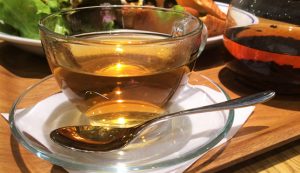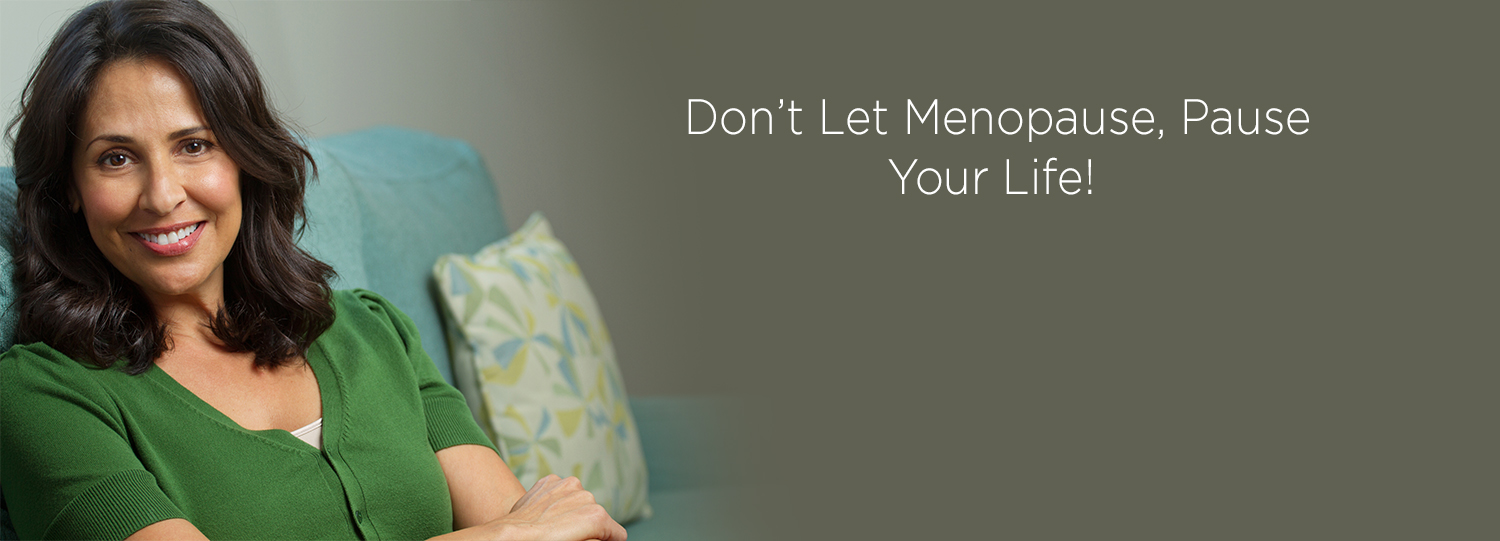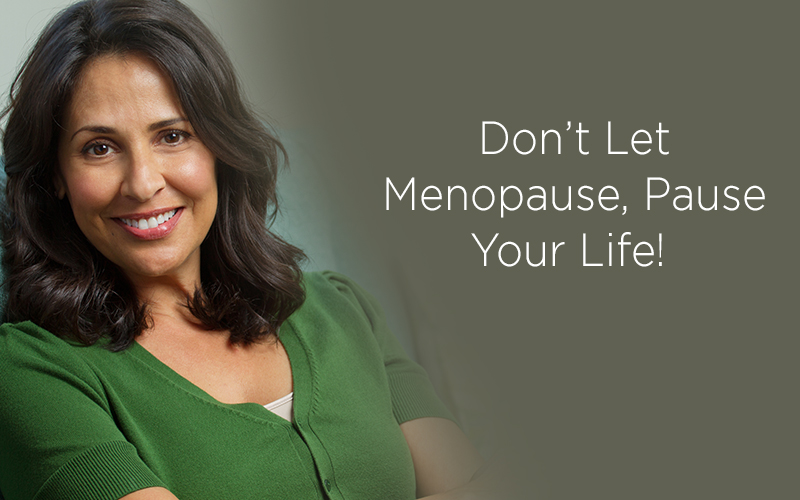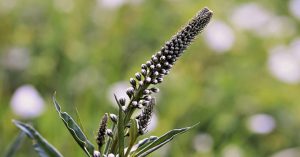Healthy Food and Diet Plans (Chart) for Menopause
Menopause is a natural decline in the reproductive hormones when a woman reaches her 40s or 50s. It also means that a woman can no longer bear children. Before menopause, her menstrual cycle becomes irregular. This means that her periods may be longer or shorter in duration or be lighter or heavier in the amount of flow. Perimenopause is the term used to define the time around menopause, whereas postmenopausal refers to the time after menopause has occurred. In this article, we have highlighted the causes and symptoms of menopause, the complications some women face during this phase, the diet they should follow for a healthy body and Health Total’s menopause management plan.
Symptoms of Menopause
The symptoms can vary from person to person due to hormonal imbalance. Ideally, a woman starts experiencing them in her mid-40s as her body’s reproductive capability comes to an end. Below are some of them:
Hot Flashes
Also known as hot flushes, this is usually accompanied by sweating and is experienced by almost 80% of the women going through menopause. Sudden changes in room temperature and stress, can trigger hot flashes and sweats. Whereas eating spicy foods can cause age-related inflammation. However, you can beat hot flashes by adopting natural ways.
Irregular Periods
In a majority of cases, the menstrual cycle changes with a tendency towards heavy, prolonged or painful periods. Skipping periods and spotting bleeding between periods are also common among some women.
Breast Pain or Tenderness
This arises because the female hormones get thrown out of balance and are usually seen around the time of ovulation or menstruation. A woman should consult her doctor if the pain is severe and persists for two or more months and is accompanied by breast lump, nipple discharge, or any other unusual symptom.
Weight Gain
Old age means a natural reduction in physical activity, hence menopause could be a reason for weight gain. While some say it has nothing to do with weight gain, hormonal changes during this phase do influence a woman’s weight. So, change in diet and exercise are necessary. Try this recipe as it is loaded with nutritional qualities and will help you fight the symptoms.
Loss of Libido
Women going through menopause may find a sudden drop in desire for sexual activity. The main reason for low sex drive is the hormonal imbalance. Loss of libido can also be caused by vaginal dryness, which occurs when the usually moist and soft feeling of the lining of the vagina disappears. Lack of lubrication leads to sex becoming uncomfortable. A woman must consult her doctor if this condition affects the quality of life.
Mood Swings, Anxiety, and Sleep Disorders
Menopausal mood swings can be hard to cope up with. They can be sudden and intense, although they might differ from woman to woman. Anxiety and irritability can also be part of the menopause. Some women find these symptoms similar in nature to Premenstrual syndrome. Waking up many times in the middle of the night and tossing over are all sleep disorders linked to menopause.
 Fatigue
Fatigue
This is one of the most common symptoms due to weakness, tiredness, and low energy levels. Chronic fatigue can have a drastic impact on daily life, affecting relationships and work productivity.
Hair Loss and Brittle Nails
Some women find these parts of the body losing condition, luster, and strength. Hair loss may be sudden or gradual or manifest as thinning on the head or other parts of the body, including pubic area. Nail appearance can also tell a lot about someone’s health. During menopause, nails that are softer, crack and break. This could also be a nutritional deficiency, but in menopause, a woman’s nails are brittle due to hormonal changes.
Menopause Treatment
Most women do not need treatment for menopause, as their symptoms go away naturally. But some find the symptoms very uncomfortable and hence they opt for treatments. Here are some ways to deal with specific symptoms and what medication options are available:
Hormone replacement therapy: Estrogen therapy is often subscribed to resupply the body with the hormones it no longer produces. It helps to relieve menopausal hot flashes and prevents bones loss.
Vaginal estrogen: To relieve vaginal dryness, estrogen can be administered directly to the vagina using a vaginal cream or tablet. It can help relieve vaginal dryness, discomfort with intercourse and some urinary symptoms.
Gabapentin: Gabapentin is approved to treat seizures, but it has also shown to help reduce hot flashes. This drug is good for women who can’t use estrogen therapy and those who have a migraine.
Lifestyle changes: A nutritious diet and exercising regularly will go a long way towards minimizing the symptoms of menopause. Also, quitting smoking and drinking will help to maintain a good health. Eat foods high in plant estrogens such as soybeans and soy milk. Raise your calcium intake to 1,500 mg a day.
 Know more about other complications that women face during menopause.
Know more about other complications that women face during menopause.
Is Amberen Safe?
Though menopause as many as 35 symptoms, some of which we have highlighted above, they all have a common cause – hormonal changes. Instead of covering up the symptoms, Amberen targets the root of menopause – hormonal imbalance. Hormonal imbalance starts with the drop in hypothalamus function, but Amberen rejuvenates the hypothalamus by restoring its communication with the hormone-producing organs. It provides comfort from hot flashes, mood swings, fatigue and other symptoms.
Menopause Supplements vs Hormone Replacement Therapy
 Hormone Replacement Therapy (HRT) is considered the best when it comes to treating the symptoms as it is effective and provides faster relief. But it comes with substantial risks, so it may not work for every woman. Also, many women are against this therapy because of the dangers associated with it. For instance, hormone therapy increases the risk of breast cancer, stroke, heart disease and ovarian cancer. Hence, women choose alternative treatments such as the use of menopause supplements.
Hormone Replacement Therapy (HRT) is considered the best when it comes to treating the symptoms as it is effective and provides faster relief. But it comes with substantial risks, so it may not work for every woman. Also, many women are against this therapy because of the dangers associated with it. For instance, hormone therapy increases the risk of breast cancer, stroke, heart disease and ovarian cancer. Hence, women choose alternative treatments such as the use of menopause supplements.
Natural Ways to Treat Menopause
There are an array of natural remedies available to help women cope up with menopause. However, it is important to consult your doctor before consuming supplements or herbs. Some natural remedies are:
Black Cohosh
This herb has been backed by science for its possible effects on hot flashes. Black cohosh is derived from a plant in the buttercup family. You can take it in many forms: capsules, tablets, or mixed with water.
 Vitamin D
Vitamin D
It is often referred to as the sunshine vitamin, as our body produces it in response to sun exposure. Vitamin D deficiency may increase your risk of bone fractures, bone pain, and osteomalacia (softening of the bones). As women age, their ability to absorb this vitamin decreases, increasing their risk of bone density loss. So, it is essential to incorporate it into your diet.
Acupuncture
There have been cases of women finding relief from their menopause symptoms through acupuncture. Though many experts argue that acupuncture benefits are the result of the placebo effect, doctors say acupuncture is a reasonable alternative to hormone therapy for women suffering from menopausal depression and hot flashes. Some lifestyle changes too can help reduce hot flushes during menopause.
Vitamin B-12
Vitamin B-12 is a water-soluble vitamin found in many foods. It’s necessary for bone health. As you age, your body loses some ability to absorb Vitamin B-12, resulting in fatigue, weakness, constipation, numbness in hands and feet, and anxiety and depression. For more information on symptoms of anxiety and depression, click here.
Lesser-known Facts About Menopause
Menopause does not decrease a woman’s quality of life: Not all women experience menopause symptoms. And for those who do, only one out of 10 reports feeling clinically depressed.
Hot flashes are universal: Hot flashes may vary in frequency and intensity, but nine out of 10 women experience it.
Soy is beneficial: There have been fewer complaints of hot flashes from women living in Asian countries. Researchers are trying to find out if this is due to greater consumption of soy in Asia. Even if it’s not, soy has many nutrients and is good for overall health.
 Smoking can make you menopausal: Doctors say women who smoke reach menopause early in life compared to their non-smoking counterparts.
Smoking can make you menopausal: Doctors say women who smoke reach menopause early in life compared to their non-smoking counterparts.
Perimenopausal women have a high risk of accidental pregnancies: Yes, you read it right. Women can get pregnant during perimenopause and the proof is the significant rise in pregnancies among women above 35 years. Menopause takes place when a woman has had a year since her last period. This means she can get pregnant right up until then.
Health Total’s Menopause Management Plan
We have designed a customized nutrient-dense diet plan that will help you manage the following symptoms of menopause:
- Mood swings
- Joint pain
- Hair fall
- Hot flushes
- Skin dryness
- Weight gain
- Lowered metabolism
Here’s what our menopause management plan includes:
Food Plan
Our food plan includes flaxseed, black til and husk. We also recommend incorporating calcium-rich foods, soya and skimmed milk, depending on the weight loss plan. Phytoestrogens containing foods such as legumes and pulses are also good for women during menopause. For healthy living, we suggest all types of juices and green tea during menopause.

Herbal Formulation
Menopause can be a tiring time for some women, as it affects their day to day activities and mood. However, there have been instances where many women have found relief from menopause symptoms using herbs as they have very few side effects when compared to hormone replacement therapy. Here are some of the herbs that we use at Health Total:
Shatavari: Shatavari, or Asparagus racemosus, supports the reproductive system. It not only good for the young woman, but also for women in their middle and elder years. This herb helps women gracefully transition through the natural phases of life, including menopause.
Evecare: Evecare is a herbal blend that regularizes the menstrual cycle as well as controls excessive pain.
Ashoka: Ashoka tree has potent estrogenic properties, which repair the endometrium, regulate estrogen levels and help heal the inflamed endometrium during menstruation.
Lodhra: This improves the fertility by regulating ovarian hormones.
Evening Primrose: Evening Primrose oil has been part of herbal medicine for centuries for reasons like relief from hot flashes that arise just before and during menopause.
Exercise
Exercise doesn’t necessarily reduce menopausal symptoms like hot flushes and sleep disorders but it definitely helps maintain weight, relieves stress and improves your quality of life. Women should aim for at least 150 minutes of moderate aerobic activity, or 75 minutes of rigorous aerobic activity a week. We recommend walking, jogging, biking, and swimming. Also, practice meditation and yoga as they can help alleviate hot flashes and fatigue.
 There are several ways to make the menopause transition easier. For example, staying physically active, managing stress, and getting enough sleep. Also, women mus avoid processed foods and instead, opt for nutrient-dense foods such as fruits, vegetables, nuts, seeds, and whole grains
There are several ways to make the menopause transition easier. For example, staying physically active, managing stress, and getting enough sleep. Also, women mus avoid processed foods and instead, opt for nutrient-dense foods such as fruits, vegetables, nuts, seeds, and whole grains


 Fatigue
Fatigue Vitamin D
Vitamin D